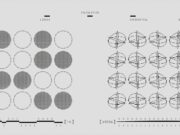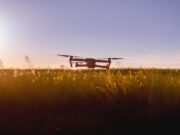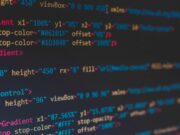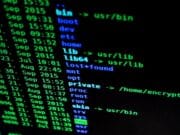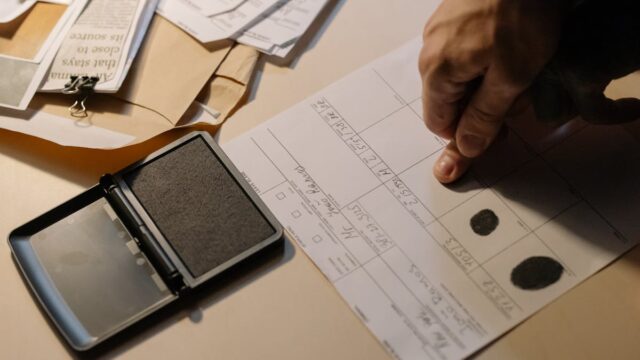Define Objective evidence is a cornerstone of decision-making in many fields, from scientific research to the legal system. Unlike subjective evidence, which is open to interpretation, objective evidence is grounded in facts that can be measured, observed, and verified. In this article, we’ll explore what objective evidence is, why it’s important, and how it’s used in different contexts.
What is Objective Evidence?
Key Characteristics of Objective Evidence
Objective evidence refers to information that is not influenced by personal feelings, interpretations, or biases. It is based on observable facts and data that can be measured or verified. The key characteristics of objective evidence are:
- Unbiased: Objective evidence is impartial and not influenced by personal views.
- Verifiable: It can be independently confirmed through experiments, observations, or recordings.
- Factual: It relies on actual data rather than opinions or assumptions.
In simple terms, objective evidence is what can be physically verified or proven, unlike subjective evidence, which is based on personal perspectives or emotions.
Examples of Objective Evidence
Factual vs. Testimonial Evidence
Some common examples of objective evidence include:
- Physical evidence: Items like fingerprints, DNA samples, or a weapon used in a crime.
- Scientific data: Measurements, experimental results, or statistical analysis.
- Documents: Written records such as contracts, official reports, or medical records.
For example, in a court case, a fingerprint on a crime scene is define objective evidence. This can be verified through forensic analysis and is fact-based. In contrast, a witness’s testimony is considered subjective evidence, as it is based on their personal experience and perception.
Here’s a quick comparison of factual evidence versus testimonial evidence:
| Type of Evidence | Example | Characteristics |
| Objective (Factual) | DNA sample, photographs | Verifiable, measurable, unbiased |
| Subjective (Testimonial) | Eyewitness testimony, opinions | Based on perception, interpretive |
Objective vs Subjective Evidence
How They Differ and Why It Matters
The difference between objective evidence and subjective evidence is crucial in many fields. While subjective evidence involves personal opinions or experiences, objective evidence is based on facts that can be proven or disproven.
In legal cases, for instance, a judge or jury may give more weight to objective evidence like surveillance footage or medical records. These pieces of evidence are factual and harder to dispute. On the other hand, testimonials or personal opinions can be challenged based on the credibility of the witness or their interpretation of events.
Types of Objective Evidence
Physical Evidence, Scientific Evidence, and More
There are different types of objective evidence, each serving a specific purpose depending on the context:
- Physical evidence: Items like weapons, documents, or tools. These are often used in criminal investigations.
- Scientific evidence: Data obtained from experiments, studies, or tests, such as empirical evidence or observational data.
- Documentary evidence: Written or recorded materials that provide factual data, such as receipts, contracts, or reports.
In scientific research, objective data gathered from experiments plays a crucial role in testing hypotheses and drawing conclusions. Similarly, in the legal system, objective evidence like physical evidence is often pivotal in proving guilt or innocence.
The Importance of Objective Evidence in Research
Supporting Validity with Unbiased Data
In the world of research, objective evidence is essential for maintaining validity. When conducting studies, it is important to collect data that is unbiased and verifiable. This ensures that conclusions drawn from the data are based on real-world observations, rather than personal opinions or assumptions.
For example, scientific studies rely on empirical evidence and observational data to confirm hypotheses. Objective evidence in research supports the credibility of findings and reduces the chance of bias or error.
Objective Evidence in Legal Contexts
The Role of Verifiable Evidence in Courtrooms
In the legal system, objective evidence is vital for a fair trial. It’s considered more reliable than testimony because it’s based on facts, not opinions. Physical evidence, like DNA, fingerprints, or weapons, can often make or break a case.
In contrast, subjective evidence, such as eyewitness testimony, can be influenced by memory distortions or bias, making it less reliable in court. Objective evidence gives a clearer, more unbiased view of the events that occurred.
How to Collect and Analyze Objective Evidence
Reliable Methods for Gathering Unbiased Information
When collecting objective evidence, it’s essential to use reliable and consistent methods. Here are some tips for collecting unbiased information:
- Document everything: Whether in research or a criminal investigation, keep thorough records of all evidence gathered, including photographs and written reports.
The goal is to ensure that the evidence collected is unbiased, reliable, and verifiable.
Objective Evidence in Decision-Making
Using Factual Data to Inform Choices
Objective evidence plays a key role in decision-making, both in professional and personal settings. When decisions are based on facts, rather than emotions or assumptions, they are more likely to lead to successful outcomes.
In business, decisions are often driven by objective data like market analysis, customer feedback, or financial reports. In healthcare, objective evidence such as medical tests and diagnostic reports guide doctors’ decisions regarding treatment plans.
FAQs About Objective Evidence
1. What is the difference between objective and subjective evidence?
Objective evidence is based on facts that can be verified, such as physical evidence or scientific data. Subjective evidence, on the other hand, is based on personal interpretations or experiences, like eyewitness testimony.
2. Can objective evidence be challenged in court?
While objective evidence is generally considered reliable, it can still be challenged. In legal contexts, a defense attorney may argue that the evidence was improperly handled or that it does not conclusively prove the defendant’s guilt.
3. How is objective evidence collected in research?
In research, objective evidence is collected through systematic and scientific methods, such as controlled experiments, surveys, or data analysis. The key is to ensure that the data is free from bias and accurately represents the phenomena being studied.
4. Why is objective evidence important in decision-making?
Objective evidence helps ensure that decisions are based on facts rather than emotions, biases, or assumptions. It allows for more accurate and reliable decision-making, whether in legal matters, scientific studies, or business practices.




